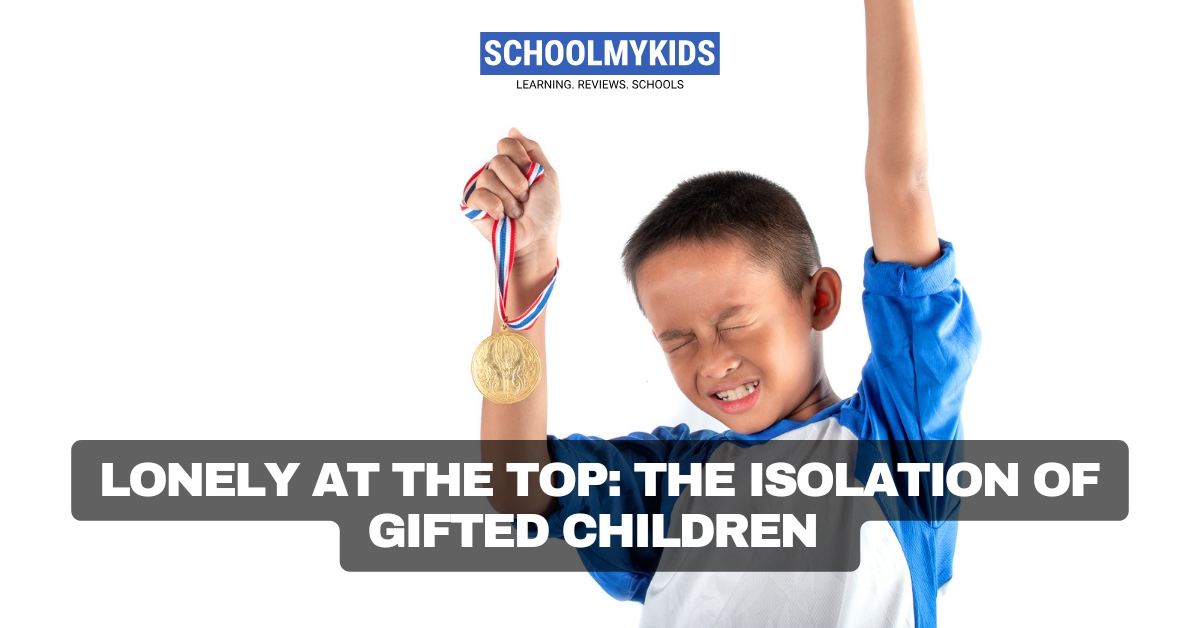Imagine being a child who thinks and learns much faster than your peers. You grasp concepts effortlessly while others struggle. You're curious about the world, eager to explore its depths, but find yourself surrounded by people who seem content with the surface. It can feel like being on a different planet, a lonely outpost where you're the only inhabitant.
We often paint a picture-perfect image of gifted children: bright, successful, and destined for greatness. While it's true that many talented children achieve remarkable things, there's a side to this story that often goes untold – the loneliness and isolation they can experience.
This blog explores the emotional and social challenges these children encounter, how parents can identify these struggles, and ways to help these children feel less alone.
Understanding the Isolation of Gifted Children
They are often characterized by their advanced cognitive abilities, creativity, and intense emotional responses. Yet, this exceptionalism can create a sense of disconnection from their peers. Many find themselves in a unique predicament: their intellectual capabilities may outpace their social skills, leaving them feeling isolated and misunderstood.
- Asynchronous Development: They often experience asynchronous development, where their intellectual growth does not align with their emotional and social maturity. This leads to frustration and feelings of inadequacy when they struggle to connect with peers who may not share their interests or level of understanding.
- Social Isolation: The traits that make these kids stand out—intense curiosity, deep thinking, and a passion for learning—can also alienate them from their peers. They may find it challenging to engage in typical childhood conversations or activities, leading to feelings of loneliness and exclusion.
- High Expectations: They often face immense pressure to excel academically and socially. The fear of letting others down, whether parents, teachers, or peers, can create a heavy burden. This pressure can manifest as perfectionism, anxiety, and even depression, further isolating them from their peers.
Identifying Signs of Isolation
As parents and caregivers, it's crucial to recognize the signs that your child may struggle with isolation. Some indicators include:
- Negative Self-Talk: They may engage in harsh self-criticism, feeling inadequate compared to their peers. This can lead to low self-esteem and a reluctance to try new things.
- Mood Swings: Intense emotions are common among these kids. If a child frequently experiences mood swings or appears overly sensitive to criticism, it may indicate deeper emotional struggles.
- Avoidance of Social Situations: If a child consistently avoids social gatherings or expresses a desire to be alone, it may be a sign that they feel out of place among their peers.
- Intense Interests: While having deep interests is often a hallmark of giftedness, if a child's interests are significantly different from those of their peers, it may contribute to their feelings of isolation.
The Psychological Impact of Loneliness
The psychological toll of isolation on children can be significant. Research indicates that gifted youths are at a higher risk for anxiety, depression, and low self-esteem. They may feel like they are living in a world where no one understands them, leading to a sense of despair and hopelessness.
- Emotional Intensity: They often experience emotions more intensely than their peers. This heightened emotional sensitivity can make everyday challenges feel overwhelming, contributing to feelings of loneliness and alienation.
- Fear of Failure: The pressure to maintain their status as "the smart kid" can lead to a fear of failure. This fear may prevent them from taking risks or engaging in activities where they might not excel, further isolating them from their peers.
Helping Your Gifted Child Combat Loneliness
Remember, your child is not alone. Many gifted children go through similar experiences. Here are some ways you can help:
- Create a Supportive Environment: Foster a home environment where your kid feels safe to share their thoughts and feelings without judgment.
- Encourage Open Communication: Talk to them about their feelings and tell them you will always listen.
- Build Self-Esteem: Help your child develop a sense of self-worth independent of their achievements.
- Seek Professional Help: If you're concerned about your child's emotional well-being, consider seeking guidance from a therapist or counselor.
- Connect with Other Gifted Children: Joining support groups or finding online communities can help your child connect with others who understand their experiences.
Conclusion
It's important to remember that every child is unique. What works for one child may not work for another. The key is to be patient, understanding, and supportive. By creating a nurturing habitat and providing the necessary support, we can help gifted children overcome their isolation and reach their full potential.








Be the first one to comment on this story.